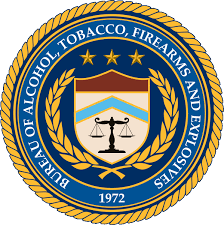
Last week three ‘experts’ on gun violence – Morall, Stewart, Webster – unanimously condemned the idea of creating a national gun registry to help control guns. In fact, these same three individuals have also supported comprehensive background checks (CBC), which would eventually create a national gun registry whether these experts know it or not.
Here’s how. Every firearm in a gun shop is listed in the shop’s Acquisition & Disposition book, known as the A&D. When a gun comes into a shop, the gun dealer makes an entry in the Acquisition side of the A&D book which shows where the gun came from, along with the make, caliber and serial number of the gun. When that gun leaves the shop because it’s been sold, the dealer then fills in the Disposition side of the book, identifying the new owner of that gun. Before the Disposition information is entered, a 4473 FBI-NICS background check form is also filled out, and is linked numerically to the relevant entry in the A&D.
Why will they know it? The ATF owns every, single collection of 4473 forms and every, single A&D book located in every gun shop in the United States. If H.R. 8 becomes law, then over time the whereabouts of every gun that has been transferred to anyone after the law goes into effect will be known by the ATF.
In the ‘olden’ days, a.k.a. pre-internet days, gun dealers kept their A&D book by hand. Now virtually every dealer maintains his inventory on disc, and the agency encourages dealers to digitalize their data because it makes it easier for the ATF agents to conduct an inspection without having to stand there and read through every page of the A&D. Incidentally, the idea that the ATF has been ‘handcuffed’ since 1998 because they can only do a trace of the initial sale of a gun happens to be a big, fat lie. If someone walks out of a gun shop with a piece and gives or sells it to someone else, obviously the movement of that gun from one pair of hands to another won’t be known. But walk into any gun shop and you’ll discover that upwards of 40% of the inventory consists of used guns.
A gun that was originally sold by that shop may end up being re-sold multiple times by that shop or other gun shops nearby. Every single one of those sales can be traced by the ATF. Why don’t they do it? Because they’re lazy and dumb. The ATF still sends out trace requests to dealers through manual fax. They haven’t heard of emails or online fax? Oh no, not those guys who are now complaining that taking away regulating tobacco is nothing more than a bunch of bureaucrats trying to protect their turf.
I’m not saying that by creating a virtual network of all gun shops that we would then have a national registry of guns in the strict sense of the word. What we would have is the ability to do a much greater and more effective tracing process which would only become even more effective if CBC at some point became law. Given the average age of the gun-owning population and the continued weakness of sales, every year more gun owners are being subtracted for natural reasons from the gun-owning population than the number of new owners who appear. Which means that all the guns that are in the hands of Gun-nut Nation would also end up requiring a CBC transfer and thus would become data that could be easily accessed by the ATF.
Everyone, including those three experts on last week’s Congressional panel who disavowed a national gun registry know full well that the reason we have much higher levels of gun violence than any other country in the OECD is because the government doesn’t know who owns the guns. I’m suggesting there’s a very simple way to make a huge dent in this knowledge gap, which would only take a modest degree of initiative that the ATF evidently lacks.

Mike,
We could create a BC system that didn’t rely on a registry and still work quite well. As you say, a de-facto registry would exist in this electronic age. But with a tightly written federal BC law and mandated safe gun storage we wouldn’t need to rely on that de-facto registry all that much. And gun crime would slowly go down.
One reason the BATFE is not johnny-on-the-spot when it comes to pursuing gun crime investigations is not lack of initiative - it’s lack of resources. For one thing, it would be nice if the law allowed them to replace their dumpsters with PCs.
Some years back I made several attempts inquiring about whether, as a muzzle loading gunmaker, I needed to pay (or, more correctly, cause my customers to pay) the 11% excise tax. I never got an answer. I was told by an FFL/gunsmith friend that, due to staff shortages & lack of resources, they had to let many such peripheral topics, otherwise in their purview, lapse.